Samuel Yakura is a Nigerian born writer, poet and performing artist living in Ireland. He’s a multiple-time Slam Champion both in Nigeria and in Ireland, winning Slam competitions like ALS, OxFam, and Talkatives. He’s a member with the WeareGriot Poetry Collective who run regular poetry/rap and hip hop events in Dublin.
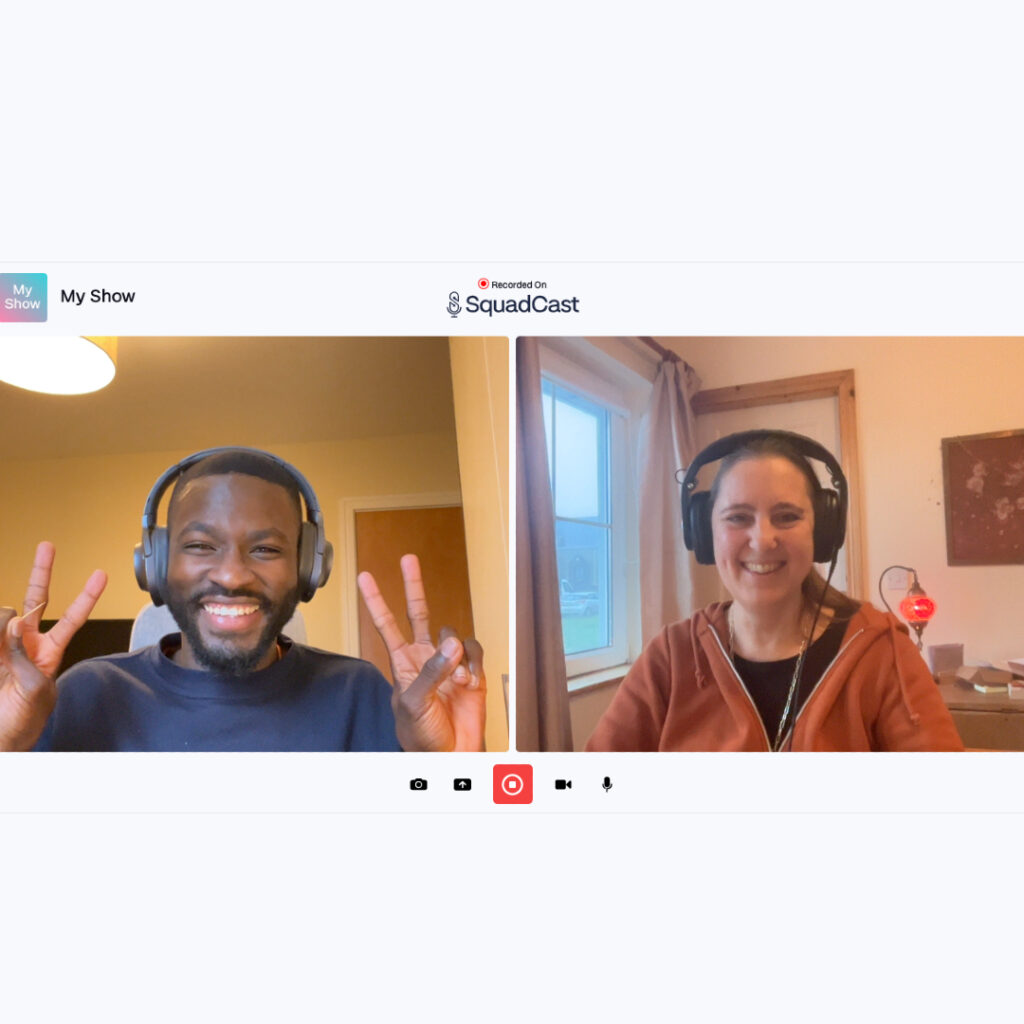
He’s also done commissioned works for the likes of Summer in the city, Poetry Ireland, Dublin Fringe, Adrian Brinkerhoff Foundation, IMMA, Gaisce Awards, amongst others. And his play, ‘The Perfect Immigrant’ premiered at the New Theatre, at the Dublin Fringe Festival in 2022.
We talked about his poetry videos on Tiktok, the slam poetry scene in Abuja before he left, his play, ‘The Perfect Immigrant’, and spoken word and Joshua Bennett.
Huge thanks to Samuel Yakura – you find more of his work at: samuelyakura.com and on his Tiktok @samuelyakura
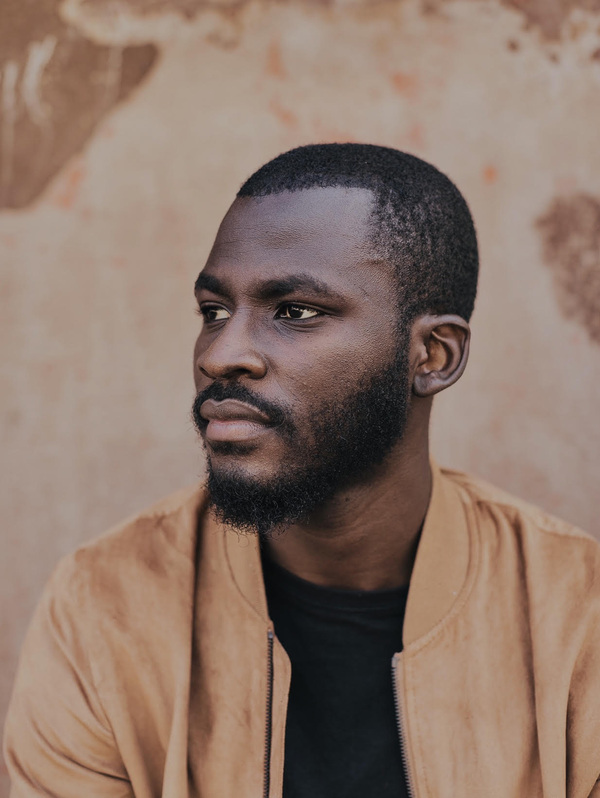
And you can read and listen to the specially commissioned piece that Samuel wrote, ‘Audience Of One’:
Thanks so much for listening and thanks to the Arts Council for their continuing support.

TRANSCRIPT:
Bairbre Flood
Hi and welcome. How are y’all getting on? My guest today, Samuel Yakura is a Nigerian born writer, poet and performing artists living in Ireland. He’s a multiple time Slam champion both in Nigeria and in Ireland – winning slam competitions like ALS, Oxfam and talkativeness.
Bairbre Flood
He’s a member with wearegriot poetry collection, who run regular poetry, rap and hip hop events in Dublin. He’s also done commissions works with the likes of Summer in the City, Poetry Ireland, Dublin Fringe, Adrian Brinkerhoff Foundation, IMMA, the Gaisce awards, among others. And his play ‘The Perfect Immigrant’ premiered at the new theatre at the Dublin Fringe Festival in 2022.
Bairbre Flood
I started off by asking Samuel about his poetry videos on Tiktok. And how he found making them:
Samuel Yakura
I have a decent creators gig set up in my room. So it’s really easy to just connect my phone and record. But as soon as I started getting into, you know, bigger projects later in the year, I was doing a couple of projects with my friends. And then I had the perfect immigrant, my play at Dublin Fringe Festival. So things kind of got, you know, very, very intense for me. So I had to pause on the social media content for a bit, but but we’re going to be back in full force next month.
Bairbre Flood
Good stuff. Yeah, we’ll talk about play in a little while, actually. But I was just still on this on the Tik Tok thing. I’m just wondering, like, do you would you would you recommend it for say young people or any poets? Like is it do you think it’s a good medium? Like to get poetry across in?
Samuel Yakura
Absolutely, absolutely. I think Tik Tok is definitely a growing platform. So there is a lot of room especially in the poetry space. You know, there is there is there is a very high demand for contemporary poetry. And, you know, not a lot of people get to go for poetry slams, or not a lot of people get to go for open mics, or, you know, theatre, it’s a very niche art form. So being able to, you know, put very short 15/20/25 seconds poetry reels on Tik Tok can reach a wider landscape of people who wouldn’t naturally be poetry enthusiasts, or people who usually listen to poetry.
Samuel Yakura
So it’s definitely a good platform or medium to reach people who wouldn’t otherwise listen to poetry, and you know, make them new converts, I suppose. Yeah.
Bairbre Flood
And it’s ideal, like the length is great, too, because people are looking for a short and things immediately. Yeah, I loved it. I thought what was the one – ‘these emotions’? Did you write that for Tik Tok? Or had you it written already?
Samuel Yakura
‘These emotions’, oh my god, sometimes it’s hard to even remember when where I think ‘these emotions’ were it was one of the earlier ones I wrote. It definitely was for for social media content. And then when I was picking out the, the underscore the soundscape for the poem, it kind of defined the rhythm, you know, for for that particular poem, but But yes, it was it was written for for Tiktok. Good, good couple of the, the write offs I did around that period, were very short, because I kind of intended to put them out and I knew that I wouldn’t have time to always write you know, every week.
Samuel Yakura
So whenever I had, like, you know, the fuel to write, I would binge write a couple of short poems and record so that even you know, during the weeks that I probably wouldn’t, you know, be able to record I had stuff to put up. It was just that I ran out of my backup policy. Before I I have before, you know, we got into the later months of the year.
Bairbre Flood
I really like it is excellent. I love the rhythm and is there any possibility I could put this in with this interview as it is?
Samuel Yakura
Yeah, yeah, absolutely. Absolutely.
Bairbre Flood
It’s a great piece I really love it.
Samuel Yakura
Thank you.
Samuel Yakura
[Reads poem, ‘Emotional Times’]
Bairbre Flood
That was ’emotional times’ taken from Samuel’s Tiktok – you can go and have a listen yourself. Samuel Yakura. As I mentioned earlier, Samuel is originally from Nigeria. And I asked him if he’d been active in the slam poetry scene in Abuja before he left.
Samuel Yakura
Absolutely, you know, my poetry story wouldn’t wouldn’t be complete without acknowledging my, my early nurturing years with Abuja Literary Society, which was basically a literary community that helped a lot of us, you know, art enthusiasts writers budding poets at the time, it kind of give us a platform to be able to, you know, come on stage every, you know, Friday, at the end of the week to share our poems, get feedback, build our confidence, you know, learn all of the techniques that we needed to get better at the craft
And yeah, I spent the better part of my final year in college with Abuja Literary Society and then I started entering poetry slams, I won a good couple of poetry slams, and you know, made some money as well started becoming a household name and then I had to move and start to fresh in Ireland, and oh my god. Here we are.
Bairbre Flood
Yeah, I mean, would you describe yourself as an immigrant or a black writer or how important is that identity with you?
Samuel Yakura
Well, it is, it is fairly appropriate to say that I am an I am an immigrant, because I moved from Nigeria which was my – which is my home islands, just seeking better opportunities, seeking to become, you know, global citizen in, in my career as you know, as an engineer as well as, as an artist. So, yeah, I am, I am an artist, I am my black man. I am a Nigerian. And I’m learning to, you know, accept Ireland as my home as well. You know, I’m learning to embrace the beauty of the experience that both spaces give to me, and how that influences my perception of life. And how I create create my work. So So yeah, absolutely.
Bairbre Flood
I loved your reading of Joshua Bennetts, ten things I want to say to a Black Woman, yeah, it’s excellent.
Samuel Yakura
Yeah, it was one of Joshua Bennetts, he is one of the few poets that really well, not few, but one of the many poets that really inspired me when I started listening to spoken word poetry. Yeah, and that that poem was definitely a poem that has left an impression in my heart in a lot of ways. Both personally also, you know, from a writing perspective, you know, you come from a come from a home or our country where it is in certain spaces, you know, there, there are ways the woman is perceived or there are ways that she’s being treated, and that this didn’t resonate, or doesn’t resonate very well with me. So the way Joshua Bennett was able to narrate the story of his perception of a black woman, and you know how he told that story was very inspiring for me. And it has inspired a lot of my work as well. So yeah.
Bairbre Flood
It’s really beautiful. Yeah, it’s worth people to really look. I’m sure it’s on YouTube.
Samuel Yakura
Yeah, yeah, it is. Shout out to Emma and Adrian Brinkerhoff Foundation whom I worked with on that project. Yeah, one of one of the very fine projects I did in 2020. It’s up on YouTube. It’s on my website as well, samuelyakura.com
Bairbre Flood
Yeah, yeah. It’s really beautiful. And it’s got me looking into his poetry and his origins and his. And I think he’s brought he brought out a new book on spoken word.
Samuel Yakura
Spoken word. Yeah. Yes. Spoken Word, cultural history. We’ll be grabbing my copy soon.
Bairbre Flood
Yeah. Because I mean, did I see something on your website that you prefer poetry spoken and performances? Rather than on the page?
Samuel Yakura
Absolutely, absolutely. Now, you know, it doesn’t undermine the fact that poetry will always start from from the page. But I love the fact that stage poetry or performance poetry, or spoken word, poetry, doesn’t just, you know, allow the poem live on the page, but then it allows the personality and the style and the voice of the poet to come out through the poem as well. And it just gives the poem and a life of its own on stage, which you you normally wouldn’t find on the page. So I’ve always, I’ve always loved those elements that spoken word poetry gives to, to page poetry, you know,
Bairbre Flood
Do you get nervous at all, when you’re performing?
Samuel Yakura
Just for the first 10 seconds, yeah, the nerves would always be there, like, you know, the fact that you’re going to be, you know, in the spotlight, you’re going to share work with people you’ve probably never met before, it’s always a new audience.
Samuel Yakura
You don’t know if they love your work, you don’t know what to expect, you don’t know the energy you’re going to get in the room. So the nerves would always be there. But, you know, preparation always helps. Preparation always helps. And just trusting your work, trusting your voice, and you know, 90% of the time, you know, the audience would be warm and welcoming. So yeah, the nerves will be there. But you know, once you get past the first few, few lines, you kind of ease into it.
Bairbre Flood
I think it’s good for especially for younger people to know that that’s a natural part of the process, you know, because maybe sometimes people can be put off if they get so nervous, and then they feel like they can’t continue. But it’s good to just keep keep going with it.
Samuel Yakura
Absolutely. Just do it.
Bairbre Flood
Do you want to read some poetry?
Samuel Yakura
Oh, yeah, absolutely.
Samuel Yakura
So this poem is titled, The labour room. It’s a poem about my experience moving to Ireland, as well as my observation of the reception of immigrants in in Ireland. And this poem was an attempt to advocate for the reality that the world is becoming a global village and Ireland is now more multicultural than it ever has been. And the need for us to appreciate the representation for all people that live here and have come to to call Ireland their home.
Samuel Yakura
So here’s ‘the labour room’…
Samuel Yakura
The seeds in your belly are swelling. The scenes in your belly are yelling. Your womb has held these cracks very long faultlines from baby’s kicking through her. Yes, the fault lies with us being the absent dad so you keep stretching, searching for space, even in your own skin. These stretch marks, pulling God’s weight on your waistline. It too has learned to the price of pushing boundary lines while learning to hold life. Somewhere between a deathbed and stillbirth is a mother risking life to bear and this is what it feels like to mix pain with hope to give birth with caution is just one of many untold Tales by the Moonlight Tales stuck in the throat of along the midnight
Samuel Yakura
Your journey has been a labour room with no midwives trying to restart life what it feels like midlife crisis you diagnose redonk delighted to have been caring old and new community but who is caring, we feel your glass we mugshot when you asked only to be seen. And when you showed lactose intolerance, we pretended it was your cup of tea, our hand may not be staying with your blood. And only because you lost most of it in the struggle to be here this poem is a pregnant mother whose water just broke. So soak in her discomfort for that is how you will learn to be walked this baby in her belly is a burden we will no longer bury, we will bring empathy in a scalpel to face lift the pain of your pelvic floors, push through the tremors of bureaucracy of one diversity higher which we are tired, we want you to push more in this new space push till we bring down these walls in the mind push till we break the curse of the other push too we share the burden of the mother till we all become the mother to your sorrow cries become the joy cries of your newborn, and his name becomes as valid as mine and her song, no longer needing to be a revolution, you are a son of the soil your sweat falls in, you’re welcome here you have earned your place here
Samuel Yakura
your baby is welcome here.
Samuel Yakura
I see this even in my circles, you know, even you know, around my friends or you know, platforms like this where I have the opportunity to lend my voice, I think we all have a responsibility. And I think that’s where it all starts. It’s never one man’s job. It’s not the responsibility of the immigrant, it’s not the responsibility of the government is not the responsibility of the indigenous citizens.
Samuel Yakura
It is the responsibility of each and every one of us, you know, to to be welcoming. A couple of years ago when I moved here – and even though I didn’t come to Direct Provision – I came as a student, I came to do my masters. And you know, just the challenge of leaving home and settling into a new space was was very challenging.
Samuel Yakura
And I had to find community. I had to find people who could help me, settling in, who had gone ahead of me, who had already experienced the things I was going to experience. And community was the strongest thing that really helped me get to a point where I could now call Ireland my home as well.
Samuel Yakura
So, I think we need to push for community and community is not one person’s responsibility, it is the government it is with the immigrant you know, it is the artists responsibility to continue to speak at the fringes, you know, of these themes and topics it is the responsibility of every indigenous citizen to educate themselves. And to appreciate where these are the people who you probably are not very familiar with are coming from because they are now sharing the same space with you. And there will be interaction and there needs to be dialogue there needs to be conversation and and so yeah, that’s that’s those are my my buzzwords, you know, responsibility, community and and dialogue.
Samuel Yakura
I agree we definitely have a very long way to go. And we have to keep pushing for these conversations. Both you know, verbally and you know, an interaction as well. The last one of the last lines in the poem I just did said ‘You’re a son of the soil your sweat falls in’ and it ties in very well with you know what you said there. You know how that everyone coming here is not is not coming to be a liability. Everyone coming here is is bringing their experiences is bringing their time.
Samuel Yakura
And is bringing their gift – is bringing their stories – is bringing something that will offer value, you know, to this space, and the earlier that we are more embracing. Because globalisation as we know, it is not can’t be stopped, the world is gradually becoming a smaller place, and you know, the definition of home is changing.
Samuel Yakura
My children now are, by default, going to have dual citizenship, they will be Nigerian and Irish, and their children would probably maybe migrate to some other country, maybe to Australia, and then all of a sudden, they’re both Nigerian and Irish and Australian. And so you have this interconnectedness that can’t be stopped now, 100 years ago, we probably might have been very difficult to move from one place to the other. But now, you know, someone can just wake up and say, oh, I want to relocate to Sri Lanka or I want to relocate to Senegal, you know, and all they need to do is book a flight, and, and move. So globalisation as we know, it is changing all these definitions. And the sooner we accept that this is the reality of things, the sooner we start to, you know, create structures that aid that adaptation, you know, and and, you know, make Ireland a place where everybody who is coming in can feel welcome, you know, and can call this their, their home as well.
Bairbre Flood
Yeah it’s happening, and we need to come up with ways to make it easier for people instead of making it harder for people because at the moment, that’s this seems to be the, the plan or the strategy. But anyway, do you want to read the piece that you did for especially for this programme?
Samuel Yakura
Yeah, absolutely. So I was I was fascinated by the theme of wonder, you know, and, you know, I was thinking to myself, What would I like to write on? What would the theme wander inspire, as far as my experiences and I came up with a poem titled ‘The audience of one’.
Samuel Yakura
When I was a child, my mother always feared I would wander off. So she kept an eye on me. Said Tisha, your feet are too rapid. Footprint too swift to sink in soft soil. She remembers how I made circus of her womb, how I would fall gracefully from the steep heels of our couch, jump from one arm to another, like good, skipping mountains, that I would dance on provoked. Like I was pricked by pin drop silence. But I was moving towards the rhythm you see, distant, the song of descendants or my ancestry, I could not tell. But I knew this was some sort of artistry, indeed, doubted my loyalty to her voice, said she couldn’t hear the things that drew me away. I am now old enough, old enough to be my own voice. But here I am. Looking for her. To remind me of the rebellion I mixed so well with my innocence. The days I turned baby food to baby fuel, followed the Milky Way in her breast milk for the galaxies we want roamed in father’s balcony are now tucked far away from me. I have been busy, busy growing up. Being a man. Being an adult, I traded all my toys for tools. I now sit in a box with a noose for a tie. I’m the gift lost in too many wrappings covered in all this life happening to me, but never happening for me. I’m losing the child within bringing cradle to the grave. My heart doesn’t beat like it used to. It is chained to the rhythm of another. I thought I would always dance before millions. But all I am scraping for now. Our memories from the audience of one – my mother
Samuel Yakura
It’s amazing how our experiences as children – even though we might not clearly remember pictorially what those experiences were – we remember the feeling. You know, somebody said says that you might forget what someone said to you, but you can’t forget how they made you feel. And so a lot of the things I remember in my childhood are in moments were how the people that were around me or that even my childhood made me feel.
Samuel Yakura
And how that has impacted how I how I live now. As a child, I was very venturesome. I was a bubble of energy, you know, and then somehow, you kind of realise that as you grow up, as, you know, being an adult, with all the responsibilities you have to shoulder you gradually are starting to lose a bit of a bit of that, that zing that zest.
Samuel Yakura
And sometimes trying to connect back to those those memories of childhood, you know, helps you find that child again and wonder, and, you know, let those memories take you to new places. And, you know, I think that was, that was my attempt at this.
Samuel Yakura
We live in a world that is very product oriented, results oriented. And you know, the word that tells you, you shouldn’t celebrate until you have worked for it until you have achieved some goal until you have, you know, met a target or until you have, you know, finished sent that email. But, you know, Joy is, does not require any of that, you know, it is not tied to a result, it is not tied to some work that you have done.
Samuel Yakura
A child doesn’t need to mop the floor, and make his mother happy before he experiences that joy. It is it is it is an emotion that he lives in constantly, you know, and, and the I completely agree like the you know, the older we get, it’s almost like it’s more difficult to keep in touch with that joy, that that sense of, of deep seated peace and happiness, you know, that shouldn’t be tied to anything other than just being human, you know? And that you are, you’re, you’re deserving of of that, of that, that feeling, you know,
Bairbre Flood
Yeah. And I think that that’s where sometimes I think poetry and music as well just reminds us of that. It’s just remember, just like, tap into that. If it’s like going for a walk in nature, whatever it is that just gets you to connect in with that feeling. Yeah. I love that poem, yeah.
Samuel Yakura
Thank you. Thank you.
Bairbre Flood
We didn’t talk about your play ‘The perfect immigrant’? Or is it over now?
Samuel Yakura
Oh, yes we are coming back to Dublin later this year. We’re actually going on tour later in the year, the last quarter of the year. So yeah, for everyone or for people who didn’t get a chance to see it, there will be one last one last opportunity.
Bairbre Flood
To Cork?
Samuel Yakura
Cork is on the list. Yes. We are still you know, kind of planning logistics and looking at the different counties that you know would work but definitely we will be going to Cork. Definitely. I will keep you posted.
Bairbre Flood
Cool, yeah and is it a one man play – is it just yourself?
Samuel Yakura
Yeah, yeah, it’s a one man play. I was originally commissioned by Dublin Fringe Festival. And yeah, we did the New Theatre and then we did also Smock Alley and they will be Backstage Theatre Longford. And yeah, it has been an amazing run, worked with an amazing team. My director Katie O”Halloran just brought my script to life. Dylan Corbin Gray who was my dramaturg and a brilliant, brilliant bunch. And yeah, we’re definitely excited to be bringing it back later this year.
It’s basically a story about a young Nigerian immigrant, you know, moving from Nigeria to Ireland and just narrating how he has struggled to settle down.
Bairbre Flood
Good stuff. Thank you so much Samuel for chatting to me, it was really lovely talking to you, thank you for the poetry.
Samuel Yakura
It was a pleasure Bairbre, thank you for having me on the podcast!
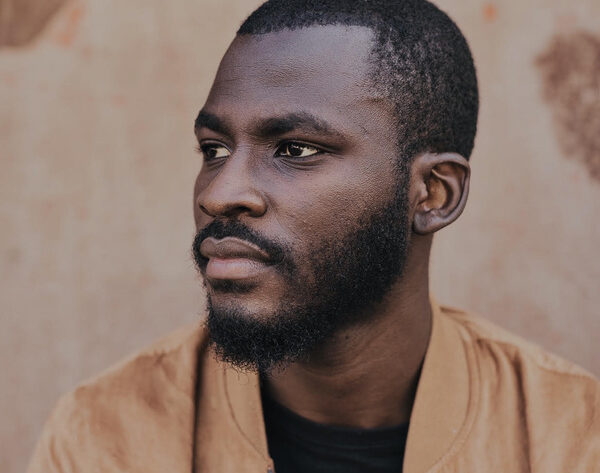
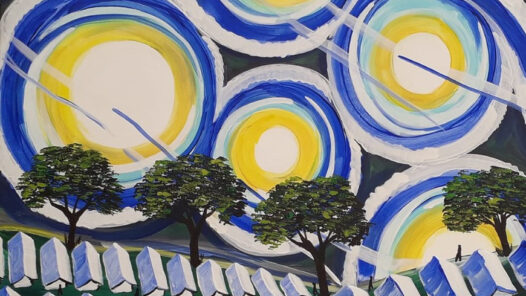
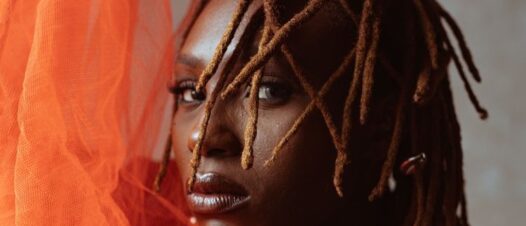
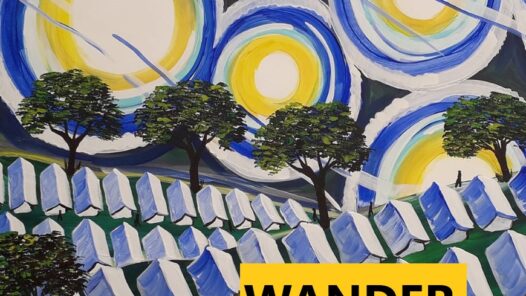
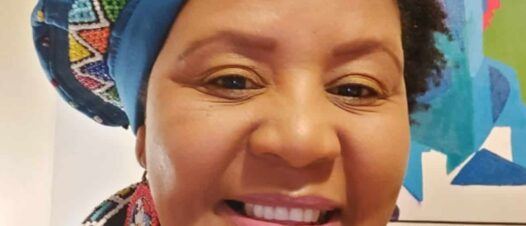
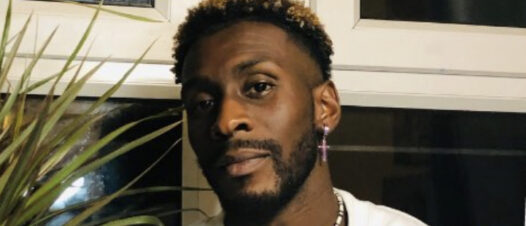
This makes so much sense Liam. Thank you for this eye-opening article!
Thank you Gemma for reading and leaving your feedback – it\’s much appreciated!
I agree with Gemma – this is really an insightful post. I will definitely recommend it to my social circle.